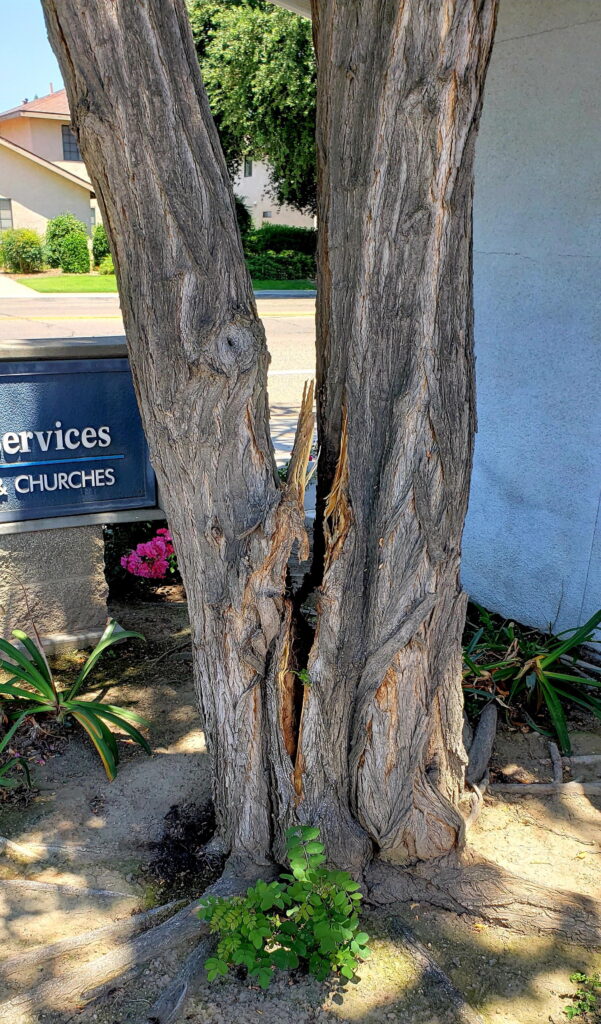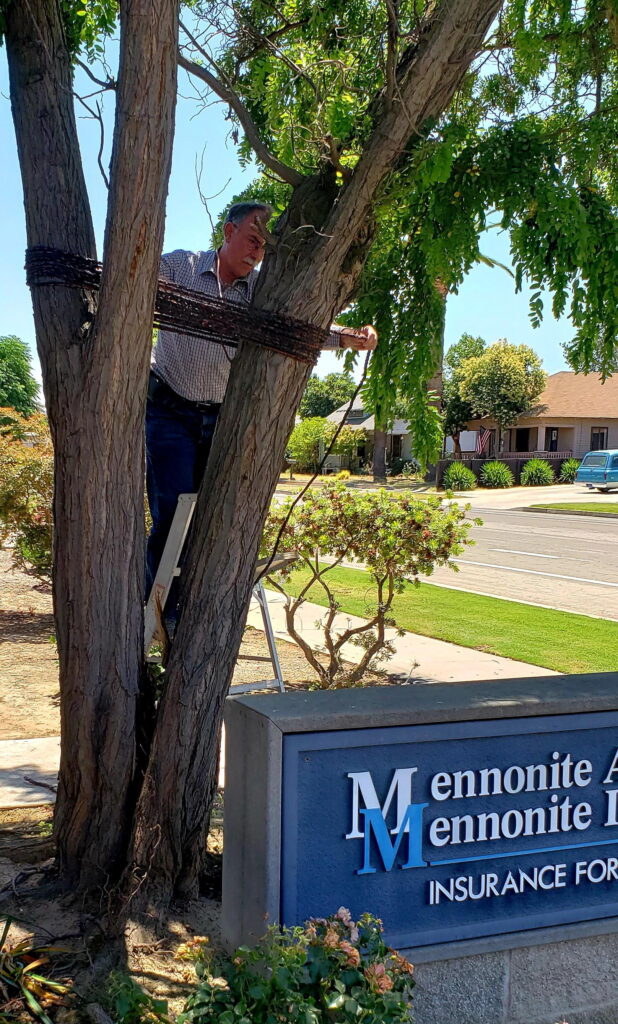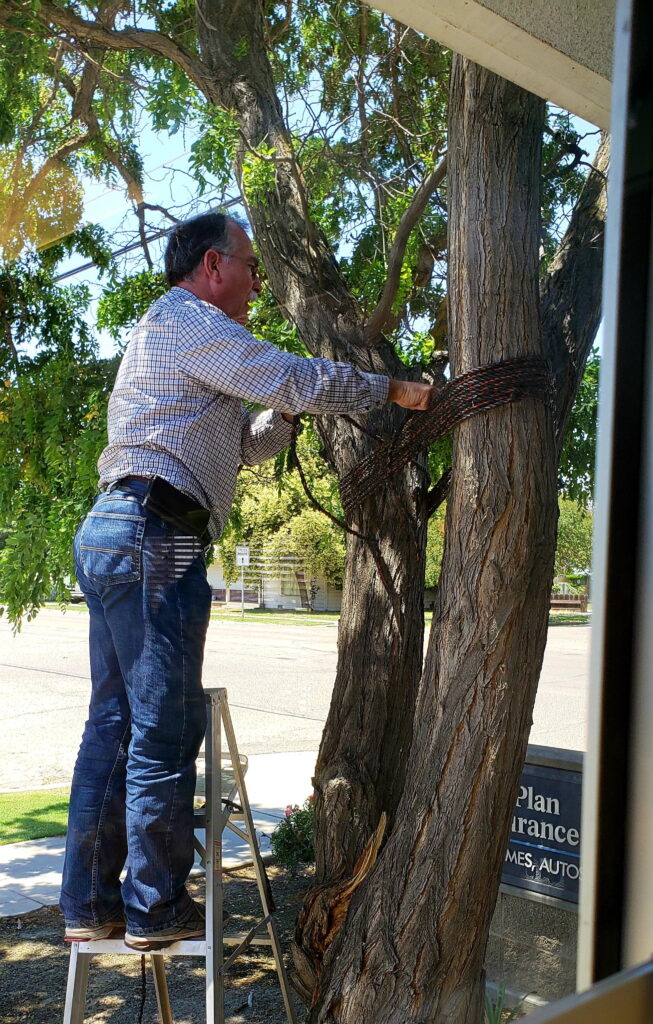By Lorie Ham
Emergencies do happen, but sometimes they can be prevented. Recently, the pest control guy knocked on the office door of Mennonite Insurance and informed Michelle Heinrichs that “there may be a problem with one of your trees.” Michelle immediately went outside and took a photo to show their general manager, Jerry Linscheid, who was in a Zoom meeting.

“It was obvious that the tree was in immediate danger of splitting all the way in half and dropping a major limb onto live wires and a main street in town,” said Michelle. “We needed to act quickly.” Michelle scheduled the tree trimmers to come out later that day, and Jerry worked to stabilize the tree in the mean-time.
If they had just ignored the problem, it could have turned into a more serious issue. “Almost everything gets worse the longer you let it go,” shared Jerry. “Leaks rarely fix themselves. This tree was not going to heal itself. We had strong winds the day before and more winds forecast for that evening. We figured the earlier winds caused the crack and the later winds would finish the job, so we had a short window within which to prevent real damage.”

By acting quickly, they were not only able to prevent an insurance claim, which usually causes rates to go up, but also potentially serious damage to the building which would have caused an inconvenience to the staff that could have affected workflow and efficiency. There would also have been extra expenses while waiting for the situation to be dealt with and possible emotional trauma. Loss payments don’t cover the cost of inconveniences or trauma. “Insurance is good at paying for things that have a price tag,” continued Jerry, “but not for intangible costs that don’t easily translate into dollars.”
Someone could also have been seriously injured. That would have been a liability claim. “Again, insurance can pay for things that have a dollar value. If someone gets hurt, there are ways of determining how much money is compensation for the injury, but it doesn’t make the hurt go away.”
So what can the rest of us do to prevent these types of claims? None of the staff had noticed the issue with the tree until it was brought to their attention–they believed that it had happened due to the recent winds, but the only way to be sure you catch these types of things in time is to be aware.” Walking the property to check for possible issues is always a good idea. My husband does that at our own home,” shared Michelle.
It is also a good idea, where possible, to act on them quickly before a tiny leak or a splitting tree turns into something much worse. Upkeep and repair is the responsibility of the owner. “Insurance is designed for sudden and accidental loss,” said Jerry.
However, some things just can’t be predicted, so it is wise to check with your insurance agent to make sure you have proper coverage for those unpredictable emergencies.


